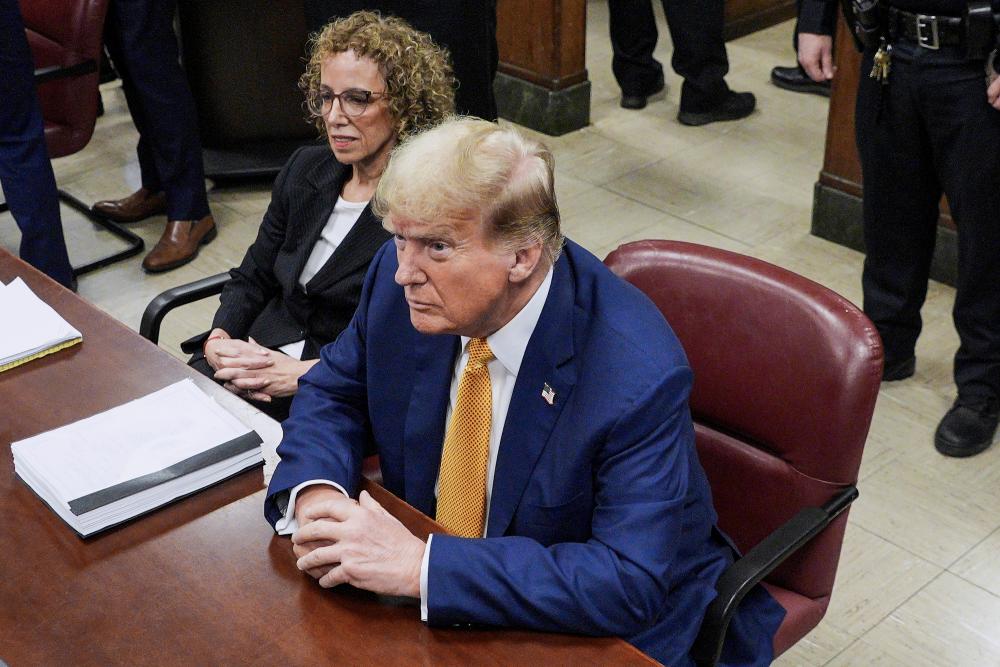In the ongoing criminal hush-money case involving Donald Trump, prosecutors in Manhattan are preparing to submit critical paperwork regarding how the case should be advanced, especially considering the recent presidential election results. This filing comes after a delay from Judge Juan Merchan regarding Trump’s request for presidential immunity, a move that followed both prosecution and defense calls for a hold in proceedings correlating to Trump’s election victory. The case experienced further delays in Trump’s sentencing stemming from his conviction on felony charges related to falsifying business records aimed at influencing the 2016 election, amidst a backdrop of heightened political dynamics involving Trump’s campaign.
On May 30, a jury found Trump guilty of 34 felony counts related to a conspiracy to manipulate the election outcome in 2016, revolving primarily around a $130,000 payment made to adult film actress Stormy Daniels. Prosecutors argued that these alleged payments were illicitly disguised as legal fees to conceal election law violations, specifically positioning the payment as a campaign contribution that exceeded the legally permissible limit. The legal fallout from this case positions Trump, the presumptive Republican nominee for the 2024 election, as a candidate grappling with significant criminal findings that could jeopardize his political aspirations, highlighted by the comment from Biden’s campaign underscoring that “no one is above the law.”
Despite being the first sitting U.S. president to face such criminal charges and eventually being convicted, Trump’s support appeared steadfast during and following the trial, as he maintained favorable polling numbers. The unprecedented nature of Trump’s fulfillment of the candidacy despite this legal burden suggests a unique intersection of legal accountability and political operability, especially as he continued his campaign without noticeable detriment from the legal proceedings. This resilience was evident as he moved past his initial sentencing date, which had been set for July 10, but was postponed after a ruling by the U.S. Supreme Court that expanded the scope of presidential immunity for actions taken in office.
Judge Merchan’s ultimate decision to delay sentencing until September and then again until November reflected a careful consideration of the case’s implications in the presidential landscape, aiming to ensure that the legal proceedings wouldn’t create an undue influence on the upcoming election. The sentence was pushed to a date well after the election, as Merchan expressed concerns over the complexities of the situation should Trump remain a key political figure while navigating these legal challenges. Prosecutors and defense attorneys appeared to agree on the necessity of a postponement, indicating a mutual recognition of the precarious balance being struck between public office and judicial proceedings.
The legal maneuvers around Trump’s conviction are notable, especially as his legal team advocated for delays and potential dismissals based on the recent election outcomes and Trump’s anticipated ascendance back to the presidency in January 2025. They stepped up requests citing the extraordinary nature of circumstances facing Trump’s legal disputes, which encompass various charges across multiple jurisdictions, including federal cases concerning classified documents and alleged election interference, indicating a conflation of legal challenges and political ambition. Prosecutors echoed the urgency of evaluating the unfolding situation, seeking to navigate the tensions between ensuring justice and acknowledging the weight of the jury’s verdict.
Additionally, ongoing developments in Trump’s other legal challenges highlight the precarious state of legal accountability for high-profile candidates. In particular, the pause in the Georgia state-level election case due to pending appeals amid allegations of prosecutorial misconduct underscores the unique set of challenges that Trump’s position presents for both legal authorities and political adversaries. The outcome of these cases, alongside Trump’s persistent presence in the political arena, continues to shape the discourse surrounding the intersection of law and governance in the evolving American political landscape. The forthcoming filing by the prosecutors is expected to be pivotal in determining the path ahead, balancing the imperatives of justice against the backdrop of an unprecedented political context.

